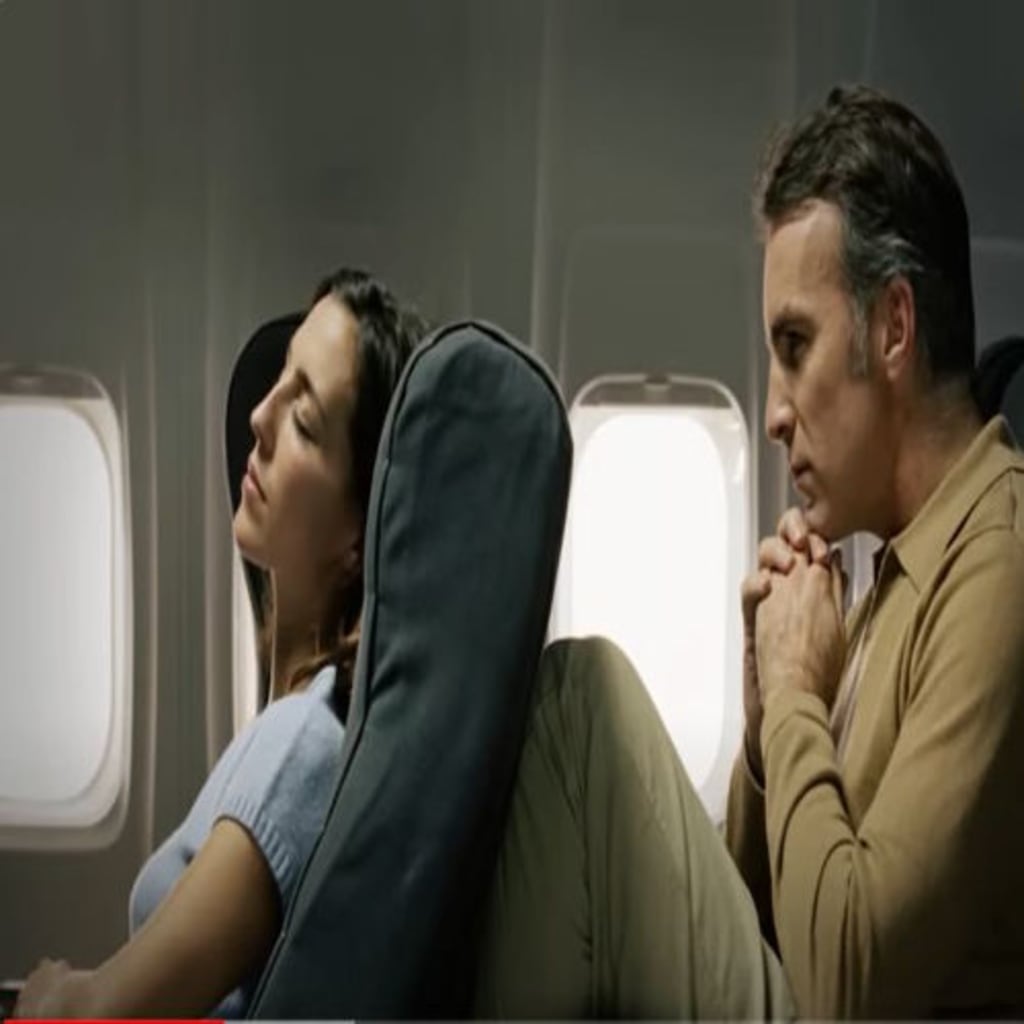
Nowadays, flying has become a common occurrence for many people. However, even frequent flyers may not be aware of certain things that should never be done while on an airplane. One major rule is to avoid going barefoot on a plane. This is one of the biggest taboos of air travel, and it's not just because of potential unpleasant odors. The airplane floor is usually quite filthy, and people with contagious foot problems might have walked barefoot in the aisles before you. Previous passengers may have left a lot of dirt behind. So, if you need to give your feet some freedom, it's best to take off your shoes but still wear your socks or bring along a pair of lightweight slippers.
It's essential to keep in mind that the air in the passenger cabin is incredibly dry, with humidity levels as low as 20%, similar to the Sahara desert. To avoid discomfort, it's wise to bring a moisturizer and use it during the flight. Installing humidifiers in planes to increase moisture is a good idea in theory, but it would be costly for airlines, and humid air could lead to corrosion due to the plane's aluminum and metal construction.
Another important rule is to secure your tray table as soon as the plane starts moving on the tarmac and never lower it during takeoff and landing. This is a safety measure that ensures a clear pathway for passengers in case of an emergency evacuation. Additionally, keeping your seat in an upright position during takeoff and landing is crucial. A reclined seat can impede an emergency evacuation and make it harder to assume the brace position during an emergency landing.
Avoid sleeping during or right after takeoff and landing, as these phases of the flight involve rapid changes in cabin air pressure, affecting the pressure in your ears. Staying alert during this time and relieving pressure by yawning, swallowing, or chewing gum can prevent permanent ear damage. Safety is also a concern, as most accidents happen during takeoff and landing, and being asleep during these stages could make it difficult to respond to emergencies.
The Environmental Protection Agency (EPA) recommends skipping hot drinks on a plane because the water used for tea or coffee is usually tap water from old onboard tanks that can contain harmful bacteria. If you still want a hot beverage, let the flight attendants handle it, as they are trained to do so safely.
As for soda, be cautious when ordering Coke on a plane. Due to the low cabin pressure at high altitudes, it tends to foam excessively. Flight attendants will fill your cup halfway, wait for the bubbles to settle, and then finish pouring, which can be time-consuming.
To minimize the spread of germs, keep your air vent open, as planes have high-quality air filters that can capture up to 99% of airborne germs. However, be sure to wipe your tray table, as it harbors eight times more bacteria than the toilet flush button.
Avoid leaning your head on the window, as you don't know who occupied your seat before you, and the glass may be covered with germs. Say no to backless sandals and high heels on a flight, as they can hinder a fast evacuation. Instead, wear sturdy shoes with a solid sole for safety.
Don't overload overhead compartments with heavy objects, as they may fall out during turbulence and injure passengers. If something is too heavy to lift into the overhead compartment, stow it under the seat in front of you.
Sometimes, hard landings may occur intentionally in bad weather to break through water or snow on the runway, preventing aquaplaning. Don't deploy an emergency slide without a real emergency, as it can cause delays and financial costs for the airline.
Follow cabin crew instructions to open window shades during takeoff and landing, as this helps them assess the situation and organize evacuations quickly if needed.
Avoid carrying spray deodorants or shaving cream in your carry-on bag, as they can explode mid-flight. Choose stick deodorants instead. Also, don't store power banks in your checked luggage, and if you bring one onboard, ensure it has a capacity of no more than 20,000 milliamps and avoid using it during the flight, as lithium batteries can pose a fire risk if mishandled.
Lastly, be considerate and respectful to fellow passengers and cabin crew. Behave appropriately, and don't try to take control of the plane during an emergency; it's highly unlikely to succeed in real life due to the stress factor and complex nature of flying a commercial passenger airplane. Safety should always be the top priority when traveling by air.
About the Creator
Enjoyed the story? Support the Creator.
Subscribe for free to receive all their stories in your feed. You could also pledge your support or give them a one-off tip, letting them know you appreciate their work.





Comments
There are no comments for this story
Be the first to respond and start the conversation.